














Head of Advisory Board
Dr. Manoj Varghese, Ph.D
Managing Editor Sarath Shyam
Consultant Editors
Dr. John Andrews
Anuja Mulmule
Emma James
Andrew Scott
Amrin Ahmed
Naomi Wilson
Stanly Lui
Steve Hope
Sabrina Samson
Enquiry: admin@k12digest.com
Creative Consultants


Charlie Jameson
Jones Williams
Louis Bernard
Keith Alexander Ajay Das
Rohith Poojary
Shirley David
Branding & Marketing Partnerships
Jennifer Anderson
Monica Davis
Suchita Sethy
Aakash Sawkar
Jessica Edword
Rachel Roy
Rajshree Jamdade
Anna Elza
Stephen Donnell
Cathy Chen
Enquiry: admin@k12digest.com
Subscription
www.k12digest.com

International Representation


Americas
16192 Coastal Highway, Lewes, DE 19958, USA
Europe
27, Old Gloucester Street, London, WC1N 3AX, UK
Middle East & Africa
P.O. Box 48299, Dubai Silicon Oasis, Dubai, UAE
Asia-Pacific Ramanashree Arcade, 18 MG Road, Bangalore – 560001, India
K12 Digest is a digital magazine published by Connecta Innovation Private Limited. All rights reserved. The opinions expressed in the content and pictures provided are those of the authors. They do not purport to reflect the opinions or views of the Connecta Innovation Private Limited or any of its members and we do not assume any responsibility. The publisher does not assume any responsibility for the advertisements, its content, pictures, and all representation of warranties made in such advertisements are those of the advertisers and not of the publisher. K12 Digest is a Free Subscription digital magazine strictly not for sale and has to be strictly for internal private use only. Publisher does not assume any responsibility arising out of anyone printing copy of this digital magazine in any format and in any country and all matters related to that.
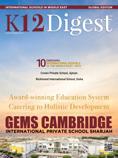


International schools in the Middle East have become increasingly popular in recent years, with many families seeking high-quality education for their children. One of the key advantages of attending an international school in the Middle East is the opportunity to learn from a diverse range of teachers and classmates. The schools attract teachers from all over the world, bringing a wealth of knowledge and expertise. Exposure to different cultures and teaching styles can broaden students’ horizons and help them develop a global perspective.
Besides strongly focusing on academic excellence, international schools in the Middle East offer a wide range of extracurricular activities and opportunities for students to develop their skills and interests. Many schools have state-ofthe-art sports, music, and arts facilities, providing students a well-rounded education beyond the classroom. Many of these schools follow rigorous
international curriculums such as the International Baccalaureate (IB) or Cambridge International Examinations (CIE), which are recognized worldwide and can give students a competitive edge when applying to universities within and outside the region.
In this issue, we have identified 10 Emerging International Schools in the Middle East- 2023 that are offering a unique opportunity for students to receive a world-class education in a multicultural environment. On the cover, we feature GEMS Cambridge International Private School Sharjah, which prides itself in students’ positive behaviour for learning and the close student, teacher, and parent relationships that have been established. The school was founded in 2019 and has grown significantly, with 1850 students currently on roll. We hope our efforts will help students and parents make informed decisions about their future. Enjoy Reading.
Sarath Shyam
Former International School Principal, Former Group Project Director at a World Class Learning Group, Education Consultant - Wright Solutions, United Kingdom

Founder & CEO - Paths to Math Ltd, Former Mathematics Teacher and Principal, Global Teacher Prize Finalist, Finland
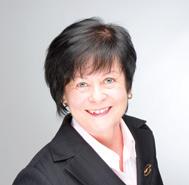
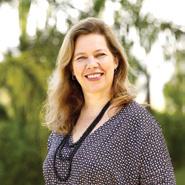

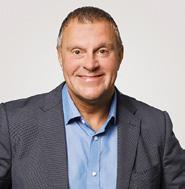
Principal, Rundle College, South Africa
Asst. Prof. Dr. Poonsri Vate-U-Lan
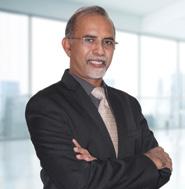
Chief Education Officer, New Nordic School, Finland
Exceptional Educator from Serbia, Founder of Association of the Best Teachers of the Former Yugoslavia, Founder of Magical Intercultural Friendship Network, Founder of Creative Magic - Children’s International Festival, Founder of Magic Village, Serbia
Assistant Professor in Education, Ph.D. Supervisor and Researcher, Thailand
Senior Educationist, Author, Keynote Speaker, Co-founderTríade Educacional, Brazil
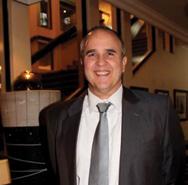
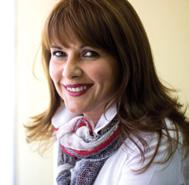
Palmans
Former Director School Administration & Business Operations (Large Education Group), Chief Operating Officer - BBD Education, Netherlands & UAE
Chief of Digital Learning and Development, Norwalk Public Schools, Connecticut, United States
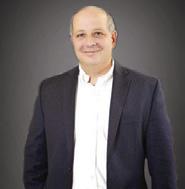
Senior Teacher‘Pashko Vasa’ school Shkodra, Exceptional Volunteer, Albania
English and Literature teacher, Owner of “The Smart Teens Studio of English” in Belgorod, Russia

Former Program Director, MS in Management Program, GSATM - AU, Thailand & India
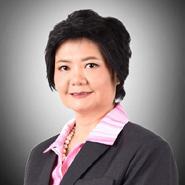
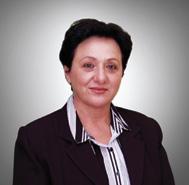
Founder & National President - ATAST, General director of IFEST² the international projects competition in Tunisia, General secretary of MILSET Africa, BRISECC member, Tunisia
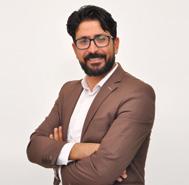
Dr. Venus M. Alboruto
Master Teacher, Researcher, Innovator, Trainer, Philippines
Deputy Head and Dean of Faculty, Dalton Academy, Beijing, China
Shady Elkassas
Director of Innovation

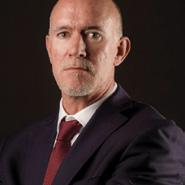
Al Ittihad National Private School-Al Ain, United Arab Emirates
Former Vice President Security (Large Education Group), Former British Army Officer (Airborne Forces), Senior Advisor – Resilience and Crisis Management (Emerald Solutions Group), United Kingdom & UAE
Innovative English and ICT Teacher, Author, Japan
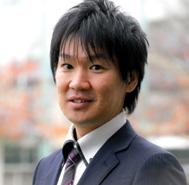
Global Teacher Prize Finalist 2019, 15 International Awards on STEM, STEM Instructor, Educator, Neuroscience Researcher, Trainer & Author, Greece
Revolutionary English Educator, Globally Connected English Studio - Hanoi, Vietnam
EdTech Specialist, Speaker and Teacher Trainer, Innovative ICT Educator, ICT learning multimedia developer, Indonesia
Distinguished Senior EFL Teacher, ISA Coordinator with the British Council, Motivational Speaker, Tunisia
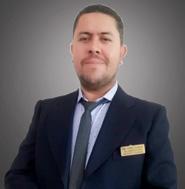
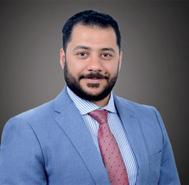
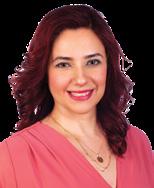
Juan Manuel Pico Co-founder & Managing Partner, Education Soul, Colombia
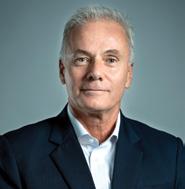
Master Teacher, Speaker and Researcher, Philippines
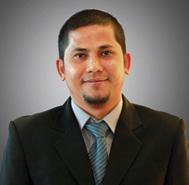
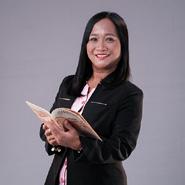
Kihyun Park
Innovative Educator of Online Classroom, Pungsaeng Middle School, South Korea
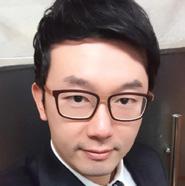
Mr. Ngô Thành Nam
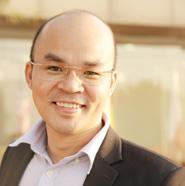
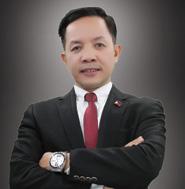
Technology Academy Manager, Microsoft Learning Consultant, Global Trainer, Vietnam
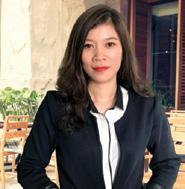
Dr. Manoj Varghese, Ph.D
Senior Director – Global Partnerships, Advisory & Consulting – Connecta® | Head of Advisory Board – Higher Education Digest® & K12 Digest® | Adjunct Faculty –Assumption University | Former CIO – Athena Education | Former Global Director Technology – GEMS Education



RICHMOND INTERNATIONAL SCHOOL DOHA



Nurturing Future Global Leaders Through Best Possible Care and Learning Experience

WHY COVID-19 NEEDS TO BE MORE THAN A HISTORY LESSON
PROMOTING TEACHER AGENCY THROUGH AN INSTRUCTIONAL EVALUATION PROCESS
Marwa Elgezery, School Principal, Kansai International Academy, Japan


WHY VIDEO GAMES ARE GOOD FOR KIDS!
WHAT WOULD IT TAKE TO PUT NATURE ON YOUR SCHOOL BOARD?

INTEGRATING THE SCHOOL’S VISION IN SCHOOL’S CULTURE

Yogesh Dalvi, School Operations Manager, A’soud Educational Services Company LLC

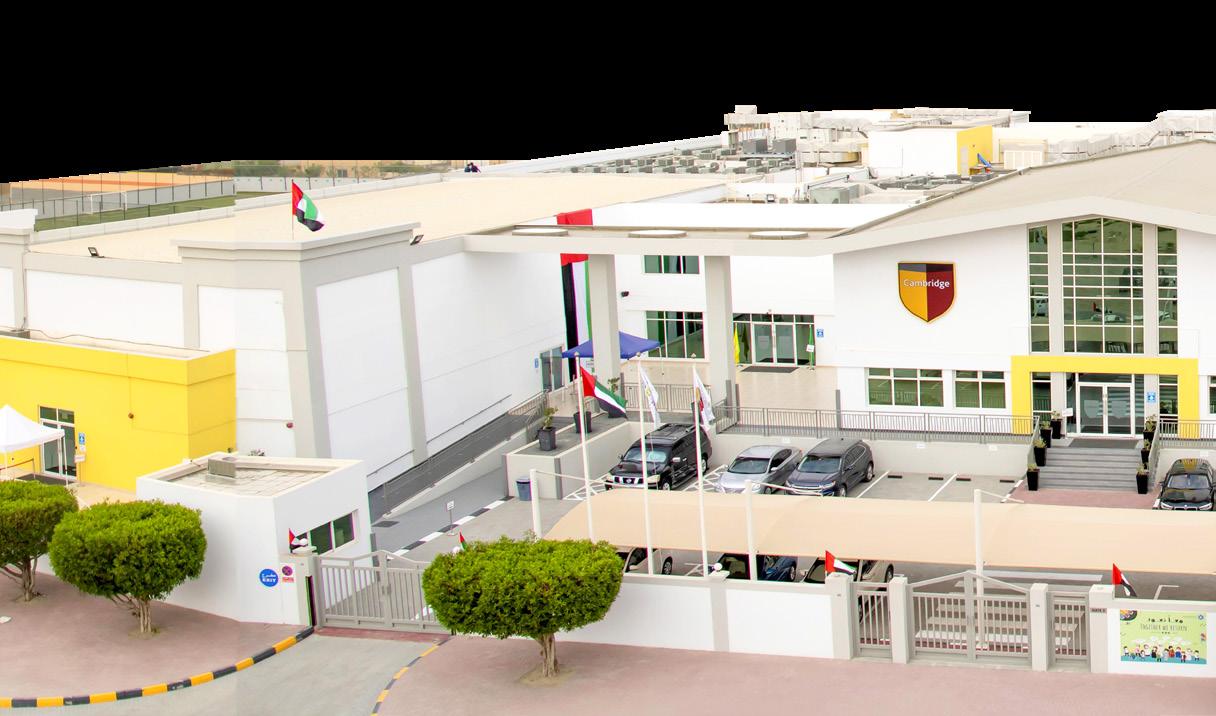



GEMS Cambridge International Private School Sharjah prides itself in students’ positive behavior for learning and the close student, teacher, and parent relationships that have been established. The values-based House system (Honesty, Integrity, Kindness, and Respect) is a key driver of the school’s ethos and approach to teaching and learning.
Opportunities for personal growth, social responsibility, and leadership through the development of well-being and mutual respect are evident in all aspects of school life, e.g.,
GCS equips its students with all the necessary skills required to explore the opportunities of the present and face the challenges of the future with confidence

Moral Education lessons; Arabic and Islamic competitions; student-parent webinars; student assemblies; student leadership roles; inter-school and external workshops and competitions.
Students’ safeguarding and well-being are at the heart of the school, with wellestablished routines that all stakeholders are clear of, and students know who they can talk to if they have a concern. The safeguarding team diligently follows up on referrals with guidance from GEMS and uses the expertise on-site of the school counselors and, when
necessary, the medical team. Established school initiatives include a dedicated Wellbeing Team on MS Teams and the active promotion and rigorous implementation of the highest standards of E-safety.
“At GCS, our mission is to enable students to realize their full potential in a multicultural, caring, and positive learning environment. We endeavor to develop responsible, globally conscious citizens through our broad and balanced curriculum. We support all students to develop their skills as life-long learners with a

strong sense of self-worth,” says Albie Huyser, the Principal and CEO at GEMS Cambridge International Private School Sharjah.
GCS is a values-based international UK curriculum school in Sharjah, United Arabic Emirates. The school was founded in 2019 and has seen significant growth, with 1850 students currently on roll. GCS caters to the needs of a diverse student population comprising 66 different nationalities from FS1 to Year 13. The school focuses on design thinking, encouraging innovative ideas and creative problem-solving. It enables learners to continually expand their knowledge and ensures a personalized approach to learning with continuous parent-teacher communication. GCS was awarded the BSME Ed Goodwin Award for Exceptional Service, which is an annual award recognizing the exceptional contribution of students in BSME schools to their local or global community. In addition, the school also worked with

UNICEF to raise awareness of a child’s rights and support children’s participation in school and the community.
“A parent’s involvement in their child’s learning does make a difference, and we are committed to giving our parents the tools and support they need to help their child achieve their full potential,” shares Mrs. Albie. GCS is very proud of its close working relationships with parents and carers as a school that continues to develop many more aspects of home-school partnerships. With a shared vision for continuous improvement, the school is determined to build on the many

The GEMS Cambridge International Private School - Sharjah campus has state-of-the-art facilities, including a spacious school library, which offers a panoramic view of Sharjah University. Other cutting-edge amenities include advanced science labs, ICT laboratories, a multi-purpose hall, a STEAM Lab, audio-visual facilities, an art and music room as well as a range of dedicated sports areas

strengths concerning parent partnership. At all levels, there is a real drive to continue developing even more effective ways to engage and involve parents in their children’s education and the broader life of the school community. The Local Advisory Board has an indepth knowledge of how leaders engage parents and the effectiveness of the strategies implemented. The school uses a range of very effective methods of communication with parents, the efficacy of which is robustly quality-assured.
Positive behavior for learning, effective classroom engagement, and very positive relationships between students and their peers and students and their teachers are real strengths at GCS. The School’s use of visible learning outcomes and success criteria, which meet the needs of individuals and groups of students, ensures that all groups of students make excellent progress. The school’s use of highly effective assessment approaches, which inform the delivery of lessons founded on the planned and intended curriculum, contributes to the high attainment levels across all year groups. In the Early Years classes, there is a maximum of 25 students and at least 2 adults in a class, whereas the older year groups vary from 15 to 30 students depending on the year group/subject. GCS has partnered with Oxford University Press to be a pilot school to launch the Oxford Well-Being Framework with a classroom culture that fosters learning and well-being. The
spiral model focuses on learning themes around caring for the body, mind, relationships, self, and the world.
All students follow the National Curriculum for England. The curriculum has been carefully designed to consider the demographics so that it is relevant and effective in developing knowledge, skills, and understanding of all students in its local context. Consequently, students can enter schools in the UK or other UK schools within the UAE without disruption. The school’s NCfE assessments are UK-sourced and benchmarked against UK standards. It also closely follows the national statutory requirements and is committed to providing a curriculum that is in line with the expectations
of the Ministry of Education (MOE) and the Sharjah Private Education Authority (SPEA). A robust induction program; bespoke PD sessions; self-directed learning opportunities; middle leaders’ training; learning walks, lessons observations; distributed planning; team teaching, and mentoring support from senior and middle leaders provide a very solid foundation for teacher training and professional development that is in line with the UAE Teacher Standards, national curriculum expectations, and the DFE teacher standards. This has contributed to the School achieving all four of the Optimus Awards for Well Being; Best Practice for Teaching Assistants; Parent Partnership, and Inclusion, just to name a few of their many accreditations and awards.

GCS creates a learning environment that enhances academic achievements by instilling values, which guide the daily lives of its students
GCS is accredited by several organizations, including the BSME, COBIS, and BSO. BSME requires schools to undertake the BSO International Framework inspection, which GCS has passed with flying colors. With school improvement, learning, safeguarding, and well-being at the core, the COBIS program supports schools with a British educational ethos worldwide in their development journey. BSO is an inspection framework for overseas schools established by the British government, which ensures schools provide their students with the skills and qualifications they need to enter or reenter the British education system.
The school is also registered with the College Board, which helps students prepare
for a successful transition to college through programs and services to ensure college readiness and college success—including the SAT, the Advanced Placement Programme, and BigFuture in the US. The administration has also registered to Common App and UCAS, which are career pathways for the UK and US.
GCS focuses on the holistic development of our students, catering to all aspects of their well-being. Apart from academics and sports, there is a need for students to also be aware of the information they receive from the internet and media. GCS initiated the Common-Sense Media School, which is committed to the deep implementation of the common-sense digital citizenship curriculum. With technology rapidly evolving, the school understands that students need exposure to it. Therefore the Microsoft Showcase Schools accreditations ensure student-

centered, immersive, and inclusive experiences that inspire lifelong learning, stimulating the development of essential future-ready skills so students are empowered to achieve more.

GCS has also been awarded the title of Unified Champion School. This title reflects the School’s intentionality towards inclusion and our dedication to creating a school community where people of all abilities are celebrated, promoting social inclusion through bespoke planned and implemented activities affecting universal change. Additionally, the school was also accredited as part of the Eco-Schools Green
Flag international body to support students in learning more about sustainable development. This is an internationally recognized accreditation for excellence in sustainable education, along with UNCCC Educate Global Bronze School, which is the new benchmark and standard in Climate Change Education and Sustainability.
GCS provides a career development program led by an award-winning career counselor who is offering and developing career guidance at GCS, the UAE, and internationally. Through
GCS caters to the wide range of abilities and talents of all the students by providing them opportunities to develop their potential, enabling them to make a positive contribution to society
the Skill Development program, all students in Year 12 work in various responsibilities across the school, based on their profile, to develop their competencies and skills. “We host regular Career Experience Days where a skills audit is conducted for parents, and based on the areas of expertise, parents are invited to engage in career orientation sessions with a personalized approach to our students,” explained Mrs. Albie. All secondary students have the opportunity to meet with industry-specialist parents and gain a better understanding of their progressive journey to success.
GCS hosts regular Career Fairs, where more than 200 universities worldwide and locally have visited the school to develop awareness and interest in career pathways, including Cambridge University, Imperial, Kings, Oxford University, and UC Berkley. Internships have been offered to students with top industry specialists such as INJAZ, HSBC, Emirates Aviation, Sharjah Child Friendly, Al Ansari Exchange, Emirates Red Crescent, and Gulf Medical University. GCS has forged partnerships with top guidance
specialists such as IDP, Crimson Education, and Medical Doorway to support visas and transition for students. The school also has a standing collaboration with over 170 universities offering scholarships and opportunities to students.
With the Introduction of MOOCs for developing career-related qualifications and credit points, students have readily embraced it and upskilled themselves in areas that interest them. The school also offers a Dual Credit program with the MOE in partnership with local universities to increase the chances for our students of acceptance into international universities. Our School has also hosted EMSAT training sessions in collaboration with Zayed university and the British Council Ambassador program, where students are selected to be ambassadors for the British council to train other students for IELTS. “We also partner with Sharjah Alliance Franchise to develop a French program for students migrating to Frenchspeaking countries or Canada. We offer bespoke training sessions on destinations and pathways for our students and parents and have extended
our support to a sister school for developing their career counseling as well,” Mrs. Albie says.
A Financial Literacy Programme and the Unifrog Career destination platform access are available for all secondary students to develop their financial acumen and research skills. All students in the Sixth Form have completed their interest profile, personality profile, and work environment profile to understand their best career choices. Personal statement writing sessions helped students meet UCAS and Common App application deadlines. Awareness sessions and involvement opportunities regarding career development and exit destinations are continuously offered to students. “We have had a 300% increase in intake for Year 12 from the previous academic year due to our excellent career counseling opportunities. All students applying for
admission to Year 12 were straight “A” students, and they chose GCS due to word of mouth and our reputation for excellent career guidance,” explains Mrs. Albie. Students who have now moved to other parts of the world and the UAE are still in contact for feedback and guidance. Students who were unsure of their career pathway benefited from bespoke one-to-one career guidance and were able to make informed decisions related to their future. This has allowed them to work in the real world, develop 21st-century competencies and skillsets for better adaptation and prepare them for their future career aspirations.
Due to the School’s bespoke and personalized support, GCS students have risen above the constraints of Covid and have become stronger and more resilient. The next step is for us all to continue on our journey to outstanding!


In a short survey questionnaire, I asked all staff to define “Effective teacher,” Surprisingly, I got as many definitions as responses. Teacher effectiveness means different things to different people, and when it comes to educators, the illustrations still as vary. Teachers go through different paths for their qualifications depending on their
backgrounds, countries, etc.; having a shared understanding of what constitutes an effective teacher is essential for a school or district to function effectively. When teachers in the same organization have different opinions and definitions of an effective teacher, this can lead to confusion and inconsistencies in expectations.
Teachers realize that effectiveness is an elusive concept when we consider the complex task of teaching; thus, adopting an instructional model to observe and evaluate teachers is essential
Marwa is a whole school principal at Kansai International Academy, KobeJapan. She holds a Master of Education (MEd), in Educational Administration from Concordia University, Nebraska-USA. Where she also earned her principal credentials. Marwa has been leading accreditation visits to schools in Japan, China, Indonesia, India, and the Middle East for many years. successfully, Marwa led her school to be a CIS-accredited school and an IB continuum bilingual school. As a lifelong learner, Marwa is perusing her studies in Instructional Leadership, and she is an Educational Doctorate EdD candidate. Prior to moving to administrative roles, Marwa is an IBDP educator and examiner. She was a teacher at Public Highschool in New York City, USA, and an international school in Cairo, Egypt.


When teachers feel that their colleagues are supportive and invested in their growth, they are more likely to be open to feedback and to take risks in their teaching practices in a more dynamic and effective learning environment for students
Sharing the survey results was the starting point for building a buy-in attitude toward the necessity of adopting an instructional model. Teachers realize that effectiveness is an elusive concept when we consider the complex task of teaching; thus, adopting an instructional model to observe and evaluate teachers is essential. The evaluation practices are not used as a summative tool for assessing teacher performance; instead, they create a common language for talking about high-quality teaching and learning, present clear instructional guidance on how classroom practice can be improved and ensure quality instruction that would improve the educational outcomes.
We have done quality research to find and adopt a practical way to support teachers to be more effective. We studied many instructional frameworks, such as Marzano’s, Danielson and the Center for Educational Leadership Teaching and Learning Instructional Model. The first challenge was determining the suitable model, an aggregate between simplicity and profundity. As we checked numerous instructional frameworks, we noticed that many were comprehensive but overwhelmingly complex, with infinite rubrics and performance levels. Some were missing essential aspects that we are lacking, such as differentiation. Our chosen instructional framework is the most suitable for our context and demands.
During the induction week and the subsequent weekly staff meetings, we unpacked the model with its domains, standards, indicators, and criteria. Like many instructional models, it covers the teacher’s professional knowledge, instructional planning, and delivery, assessment of and for learning, learning environment, professionalism, and
student achievement. Through the unpacking process, the evaluation system was perceived as providing leaders and teachers with the skills necessary to support excellent classroom practice and help us achieve our goal of being effective educators.
While most instructional models are designed to promote teacher growth, how we utilize them is the key to maximizing their benefits. First, teachers conduct a self-assessment of professional practice to reflect on their strengths, areas for improvement, and strategies for growth. Then, based on areas that need improvement, teachers should consider developing professional practice goals, which they can share with their evaluator for ideas on strategies they might consider to help achieve the goal.
The school chooses one focus; for the third year in a row, we choose “Learning environment” as our focus; then, each teacher has to choose two standards to focus on each year. The new teachers choose their focus based on the selfassessment checklist. Returnee teachers use the data gathered through the students’ survey results, the previous year’s reflection, and the observations feedback in addition to the selfassessment checklist to choose their focus. Afterward, teachers are paired up with each other to conduct peer observations throughout the year. Peer observation helps teachers together as professional educators with a compass. By focusing on specific teaching practices and strategies aligned with the instructional model and the identified goals, teachers can work together to develop their skills and improve their performance, building teacher capacity and creating a supportive and collaborative work environment.
Teachers regularly observe each other’s practices inside and outside the classroom, knowing each other’s strengths and areas of development. They only access the feedback they provide each other; I have no access to the peer observation feedback forms; I always ask for the observation dates, including the pre-observation and post-observation. I ask for a confirmation of the post-observation; I want teachers to feel confident leading their growth and development journey.
Although the decision of whether or not the principal should have access to peer observation notes is a complex issue and can vary depending on the context and culture of the school, through my experience, I can confidently say that teachers are more willing to be open and honest in their observations if they know that the notes will not be shared with others, including the principal. Teachers’ post-observation meetings are vital as they allow teachers to reflect on the observation experience, discuss what was learned, and provide feedback to each other with a focus. These meetings offer a structured opportunity for teachers to share their thoughts and ideas about the observed lesson and to identify areas where the observed teacher excelled or could improve. This structure supported building trust and developing a sense of community among teachers. When teachers feel that their colleagues are supportive and invested in their growth, they are more likely to be open to feedback and to take risks in their teaching practices in a more dynamic and effective learning environment for students.
Formal observation is part of the instructional model. It is the once-a-year visit every classroom where a PLT member and I spend a whole period observing the class.
Building a trust-based relationship made this observation- although time-consuming- a time that I am looking forward to. It is obvious that the principal is in a position of authority and has the power to make decisions that can impact a teacher’s career. If teachers feel that their observations will be used to label them or make decisions about their employment, they may be less likely to feel optimistic about it. The whole evaluation process is considered a comprehensive growth journey by being visible in the classroom and making the classroom walkthroughs part of my schedule.
It was evident that teacher agency is a critical factor in the success of both teacher evaluation and professional development plans. Agency refers to a teacher’s ability to make decisions and take action based on their own goals, values, and beliefs. And when teachers have agency in their evaluation and professional development plans, they are more likely to be motivated, engaged, and invested in their growth and development as educators. Furthermore, teacher agency in evaluation allows them to take ownership of the evaluation process. They identify their own professional learning needs and take an active role in designing and implementing their professional development plan.
Adopting an instructional model to evaluate the teacher’s effectiveness created a common language and presented clear instructional guidance aligned with the school’s purpose and direction. In addition, consistency in teacher agency by giving them voice, choice, and accountability throughout the process is crucial for ensuring that evaluation and professional development plans are effective and meaningful.

Amity International School, Abu Dhabi, UAE

Crown Private School Ajman, UAE
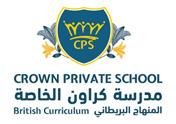
Website:
Location: Abu Dhabi, UAE
Keyperson: Adrian Frost, Principal
Admission:
Location: Ajman, UAE
Keyperson: Dr. Kishor Pillai, Director/Principal
Admission:
Website: https://www.amityabudhabi.com/ https://www.cpschool.uk/ https://www.amityabudhabi.com/ admissions/apply-today https://www.cpschool.uk/admission/ admission-process.html
GEMS American Academy - Qatar
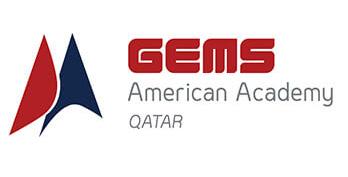
Website:
https://www.gemsamericanacademyqatar.com/en
Location: Al Wakrah, Qatar
Keyperson: Mark Lentz, Head of School
Admission:
https://www.gemsamericanacademyqatar.com/en/Admissions
GEMS Cambridge International Private School Sharjah, UAE
Website: https://www.gemscambridgeschoolsharjah.com/
Location: Sharjah, UAE
Keyperson: Albie Huyser, Principal/CEO
Admission:
https://www.gemscambridgeschoolsharjah.com/Admissions
Hartland International School, Dubai, UAE
Website:
https://www.hartlandinternational.com/
Location: Dubai, UAE
Keyperson: Fiona Cottam, Principal
Admission:
https://www.hartlandinternational. com/admissions-process/

Kent College Dubai, UAE

Website: https://kentcollege.ae/
Location: Dubai, UAE
Keyperson: Jared Nolan, Principal
Admission:
https://kentcollege.ae/admissions/
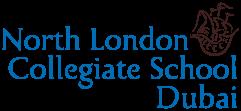
Dubai, UAE
Reigate Grammar School Riyadh, KSA
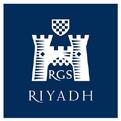
Website: https://nlcsdubai.ae/
Website:
Location: Dubai, UAE
Keyperson: James Monaghan, Principal
Admission:
https://nlcsdubai.ae/overview/
https://www.rgsinternational.org/
Location: Riyadh, Saudi Arabia
Keyperson: Sean Davey, Managing Director
Admission:
https://www.rgsinternational.org/contact-us/
Richmond International School

Doha, Qatar
Website:
https://richmonddoha.com/
Location: Doha, Qatar
Keyperson: Christopher Wragg, Principal
Admission:
https://richmonddoha.com/admission-process/
Swiss International School Doha, Qatar
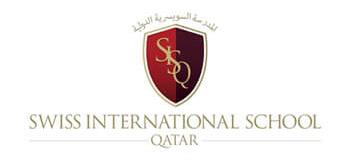
Website:
https://www.sisq.qa/
Location: Doha, Qatar
Keyperson: Vlatka Kalecak, Interim Head of School
Admission:
https://sisq.openapply.com/
Chat










fellow participants The raise hand feature ensures every student has a voice
and beyond

Adynamic learning environment is characterised by change, activity, and progress. It is purposely designed to meet the needs of all students while enhancing existing skills, interests, and understandings and challenging them to build meaningful new ones. Crown Private School (CPS), located in Ajman, United Arab Emirates, promotes a practice approach to building a visible connection between learning and life. Children are encouraged, much beyond the age-old mind-numbing education pattern, to discover their inner selves and 21st-century education in a highly practical environment. CPS endeavours to provide its students with an ideal learning environment, thus contributing to their holistic personality development.

Establishment of Crown Private School with a vision and mission

CPS is a private co-educational day school that caters to students of all ages, starting with the newly established Pre-KG section for children aged 3-4, which extends all the way up to grade 12. As an established leading British curriculum school in Ajman, CPS is committed to providing a premium British-style education within a brand-new expanded campus with state-of-the-art facilities and first-class teachers.
“Now rated as an acceptable school from the last inspection, we can offer an Enriched British curriculum taught by native speakers of English,
Exceptional Pre-KG and EYFS facilities, Excellent teaching and learning, a Strong Senior Leadership Team, and High Standards of Health and Safety,” says Dr. Kishor, Principal of CPS. At CPS, students will be part of a vibrant and happy school community. The school helps its students reach their full academic and social potential in a supportive, caring environment. “We strive to make every child successful by encouraging them to work hard and develop self-confidence and a love of learning. CPS believes in a child-centred approach where every learner is provided opportunities for individual growth,” says Dr. Kishor.
CPS’s mission is to inspire learning within a caring, creative, and international community, to pursue excellence, and to challenge students to think critically as they prepare for the world beyond. The school aims to provide students with a global outlook rooted in UAE culture. CPS teachers create a dynamic and interactive learning environment where lasting love for learning is cultivated. Dr. Kishor shares, “At CPS, we promote a practical approach that makes a visible connection between learning and the real world.” CPS learners are encouraged to discover their inner selves by developing
their curiosity and imagination through various student-centred teaching methods. Dr. Kishor further states, “We provide a curriculum based on an amalgamation of the National Curriculum of England and the Cambridge curriculum. CPS students are prepared for GCSE examinations in Year 11 and A-level examinations in Year 13 - qualifications that are recognised and highly valued by universities worldwide.” CPS focuses on developing a child’s entire personality, and students are nurtured to expand their potential by exploring the world around them and taking responsibility for themselves and their

Dr. Kishor Pillai (Crown private’s school Principal since September 2018) has been in the education sector for 22 years. He is welltraveled and has acquired knowledge from various education systems worldwide, like Japan and Singapore. His energy and determination shape the school's vision as they embark on creating future leaders here in the UAE. Together with the chairperson of the school here at CPS, Dr. Pillai's vision includes the mental wellbeing of their Crown Family. Their collaborative efforts as staff are reinforced by his dedication and involvement. Dr. Kishor’s presence around the school campus makes him a principal who is active and hands-on. Very visible around the school. “He is shaking things up; he is always there at morning drop-off and has an opendoor policy,” said one parent.

learning. The teaching style at CPS places equal emphasis on independent learning and groupwork to promote collaboration and independent learning skills. “The curriculum is structured to cater to our students’ varying needs and different learning styles, including challenging brighter students with enrichment activities or supporting weaker students with an extensive array of differentiated teaching and learning strategies,” states Dr. Kishor.
CPS endeavours to create lifelong learners with the confidence to become socially responsible, successful global citizens and leaders of the future. Their teachers are well-groomed as per the norms of the Cambridge Curriculum and have had vast experience working with diverse cultures across the globe. Their innovative and up-to-date teaching methodologies train their students to develop critical thinking skills and challenge their abilities beyond the classroom environment.
For instance, the CPS specialist science team encourages students to investigate the world around them. They provide opportunities for students to unleash their inner scientists while creating a safe environment for their curiosity by offering experiences that are responsive to children’s interests to support their explorations. “We are devoted to your child’s ongoing development. Our energetic Math team designs ground-breaking and pioneering mathematical techniques to help your child solve real-world problems and pursue academic excellence through inquiry-based learning, which is one of our leading mission statements,” reveals Dr. Kishor.
CPS has a talented team of native Englishspeaking teachers from around the world who have worked in amazing institutions in countries like The

CPS’s mission is to inspire learning within a caring, creative, and international community, to pursue excellence, and to challenge students to think critically as they prepare for the world beyond
United Kingdom, America, Ireland, South Africa, Australia, and many more. Your child is guaranteed to advance their reading and public speaking skills in no time. They engage students in life-long learning skills that benefit their longterm goals. Teachers at Crown Private School are qualified with either a Bachelors/Masters/QTS/PGCE. Teachers at CPS are provided with internal and external professional development workshops that help to hone their educational knowledge, methodologies and strategies.
Dr. Kishor says, “We work hand in hand with our Robotics and IT team to ensure that our students are kept abreast of the latest technological platforms to advance their digital skills. As part of the country’s progressive vision, we proudly present our Immersive room - a virtual reality room customised with embedded technology that delivers a highly immersive multimedia experience for our students.”

CPS wants to create lifelong learners with the confidence to become socially responsible, successful global citizens and leaders of the future
Immersive learning is a digital approach to education that facilitates student interest and engagement, creating a unique learning experience for all. Immersive learning, as the name suggests, allows students to immerse themselves in interactive digital environments. The program uses sounds, images, and other sensations to give students a whole sensory experience, causing them to get an actual “feel” for the environment. “Immersive learning techniques help our students to experience, explore and navigate real-world subjects and destinations within the comfort of their school,” Dr. Kishor adds.
“The sudden closure of schools gave rise to emergency remote learning. Given the abruptness of the situation, teachers and administrators were unprepared for this transition and were forced to build emergency remote learning

systems almost immediately,” says Dr. Kishor.
CPS organised online professional development and peer-to-peer learning opportunities for teachers to meet remotely and share experiences while online teaching took place. They started with broadcasting video lessons via YouTube and then moved on to fully implementing online classes via Zoom. “Due to remote learning, one of the long-term challenges identified included gaps in student knowledge. At present, we offer learning recovery programs to bridge the learning gaps identified,” Dr. Kishor adds. It has become imperative for schools to not only recover from the pandemic, but to also use it as an experience to better prepare for future crises.
CPS now offers a blended education model to prepare its students to switch easily between face-to-face and remote learning as needed. This will protect the education of students not only during future pandemics, but also during other unforeseen circumstances that might cause school closures.
With the blended model of education in mind, our curriculum has been adapted to become more flexible in that content can be taught in person or online. Additionally, teachers need to be better equipped to manage a wide range of interactive platforms which supports teaching and learning. As such, we endeavour to offer short training courses regularly to improve teachers’ digital skills,” says Dr. Kishor. He also adds, “We believe it is important to build a future education system that can better use blended learning models to reach all students and their levels and to provide more individualised approaches to teaching.”
CPS prides itself on maintaining healthy parent-school partnerships by actively involving parents in every step of their child’s learning journey. CPS’s students’ parents are wellinformed about the day-to-day events in the
school. Parents are connected with their child’s teachers via the ClassDojo app and the iCampus parent portal. They conduct regular parentteacher meetings and information sessions with parents to always keep them in the loop. Dr. Kishor goes further by having an open-door policy to accommodate parents whenever the need arises. These proactive initiatives empower parents to maintain active involvement in their child’s day-to-day learning. CPS also hosts regular activities (Grandparents’Day, National Day, Feria, etc.) in partnership with all parents, thus enabling them to become a pivotal part of their child’s education.
CPS maintains a teacher-to-student ratio of 1:25. In the lower grades, the school has

CPS canteen offers a wide range of healthy school meal options, snacks and beverages at affordable prices. Strict hygienic standards are maintained at all times and children are encouraged to develop healthy eating habits


teaching assistants, thus, there are two adults per 25 students. Furthermore, CPS has in-class and after-school support classes to provide individualised learning to students. Lessons are carefully planned and incorporate differentiated instruction which considers varied students’ learning styles. Dr. Kishor states, “A learning styles test is administered at the beginning of the academic year. This test is taken by all students for us to ascertain their learning styles. The data equips teachers to plan lessons accordingly.”
CPS has 50+ Smart classrooms that are richly decorated to create an inspiring learning space. Its classrooms are modern and spacious, enhancing children’s learning experience. The school possesses a specialised Creative Arts Room with internet access where students are
Sport plays a crucial role in the physical, educational, and social development of Crown Private School students, encouraging them to explore their talents, develop their skills, and enhance their abilities, whilst enjoying an active, healthy lifestyle

encouraged to explore their creative talents and showcase their creative expressions. The school houses a well-stocked resource centre that offers textbooks, notebooks, and a range of stationery. To maintain uniformity, parents are encouraged to make use of this facility. CPS offers attractive stationery kits to their kindergarten students to use continually for the year, enabling them to perform to the best of their ability. “Our school libraries serve as a central hub for supporting every student and staff member. Well stocked with a variety of content, the library is fundamental in developing engaged readers
who have the capability and inclination to read and learn beyond their years at school. Students are encouraged to use the facilities to inculcate a love for books and a habit of reading from an early age. Additionally, we offer a mobile library during the breaks, where books are availed to students outside the bounds of four walls,” revels Dr. Kishor.
The school has interactive LED displays installed in every classroom. It is a leading educational interactive flat panel, a highly effective collaborative device to facilitate classroom teaching and digital learning. CPS

Laboratories have several well-equipped Information and Communication Technology Labs (ICT labs) that allow their students to use computers and become capable and skilled in all areas of the ICT curriculum. Technology is used to make teaching and learning meaningful and fun. Also, the Science Laboratories are an integral part of the Science Curriculum. The Science Department is fully equipped with outstanding facilities and is home to the Physics, Chemistry, Biology, and Homeroom Science subjects. Inquirybased laboratory investigations are conducted at every grade level and are at the core of the science program. “Beyond the development of skills, our sporting facilities support students in their goals of leading healthy and active lifestyles. Sport plays a crucial role in Crown Private School’sstudents’ physical, educational, and social development, encouraging them to explore their talents, develop their skills, and enhance their abilities while simultaneously enjoying an active, healthy lifestyle,” adds Dr. Kishor.

“We have a special unit established called “the sensory room’ for students with special needs, additional e-learning resources for self-learning of students and a plethora of resources and support for the professional development of teachers. We are in the process of adding New Assessment tools
which will enhance our effective assessment system,” says Dr.Kishor. Moreover, the CPS innovation club conducts a “Junior Engineering Program” for students with activities from different categories, which are most important in present technology-oriented education. The innovation lab mainly teaches students STEMrelated concepts, enabling young minds to think innovatively. Each grade level is actively involved in learning about Drone Technology, 3D Printing, Space Technology, Aero Modeling & Rocketry, Robotic Technology, Computer coding- Scratch
Program, Green Energy, Solar Energy, Hydro Energy, Wind Energy, and Recycling.
One of CPS’s students was selected as a member of the Ajman Children’s Advisory Council for 2022-2025. The Children’s Advisory Council is a platform to express children’s needs, challenges, and a vision for their and the country’s future. Furthermore, various students participate in the production of Crown News which is showcased on our
social media platforms. “Our latest accolade is the Stem Mena Award for Innovation in the classroom 2022. This award celebrates and recognises the work of schools and educators in delivering effective STEM education to students across the Middle East and North Africa. Additionally, we are an accredited e-safety school and have recently been rated as an acceptable school by the Ministry of Education. Moreover, the Government of Ajman awarded us “The Best School in Ajman” for 2021,” adds Dr. Kishor.
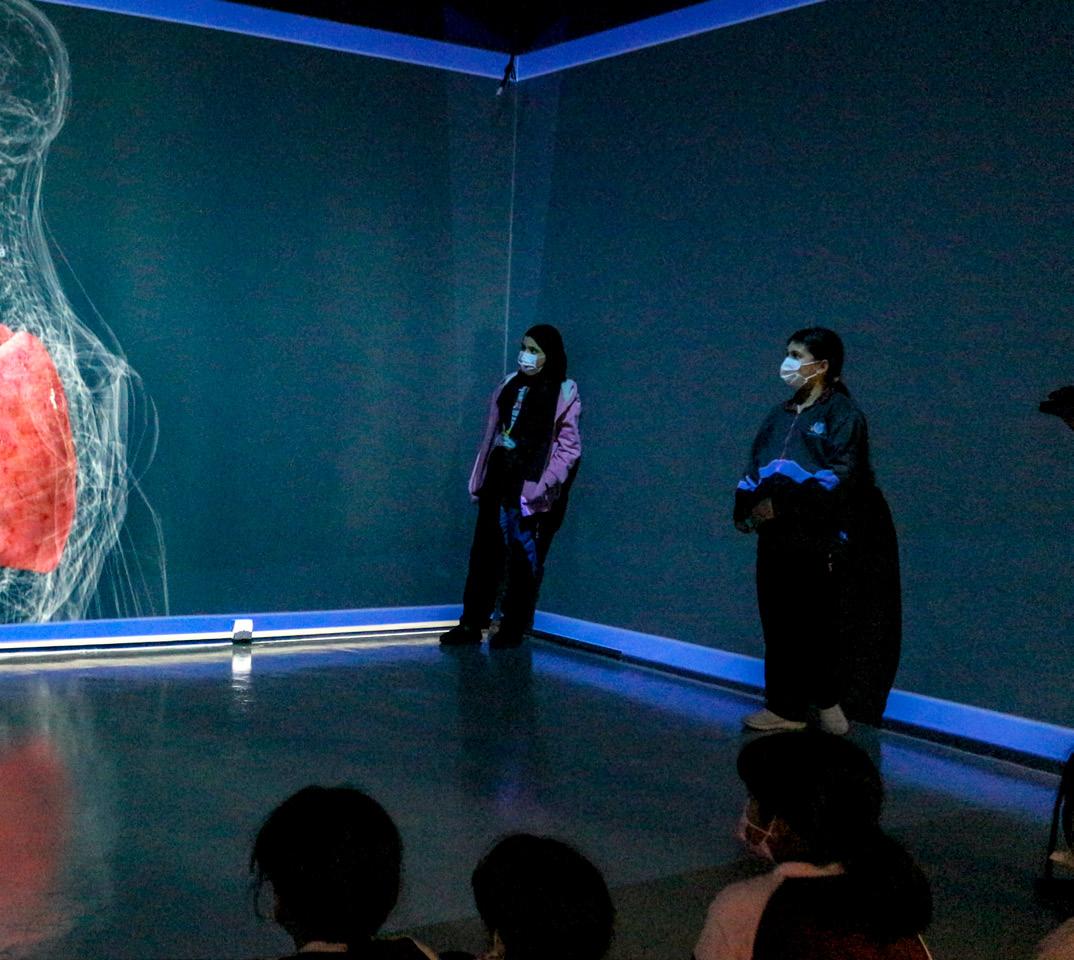
We seemed to have stopped talking about covid-19 and the pandemic that stopped the world in its tracks. For many it has been given a page in the history books and the world moved on. Yet as educators, we need to reignite the conversations around our students’ mental health and wellbeing post-pandemic. We can all see the effects of pandemic and we are all still feeling the effects.
As far back as 2014, the UK government recognised that wellbeing has a significant impact on student attainment and schools were implementing SEAL (social, emotional aspects of learning) in the USA and UK. Ten years later, and we are still discussing the benefits of embedding a wellbeing curriculum and with the pandemic in full hindsight, it is an urgent requisite for all schools.
Every stage of a child’s school life has been affected by the pandemic and as educators, we are
If we accept that wellbeing and attainment are linked, then we cannot ignore that future life chances are also affected by this worrying trend
Julia
She has been working internationally since 2012 and is a passionate advocate for children’s well-being in and out of the classroom as well an advocate for teacher development and researchbased practice. Having worked extensively across all phases from EYFS to Sixth Form in a variety of roles, she knows that happy children are successful students.

increasingly seeing children present with a range of difficulties that weren’t as prevalent pre-pandemic.
Every age and stage of schooling has been affected. A record 50% of 4 and 5 year olds are not considered to be “school ready”- a term used to support transitioning from preschool to school- by their class teachers. Frequently, teachers are reporting that many more children are unable to share with others to being unable to feed themselves- a number far higher than previous years. In the Kindred commissioned
YouGov poll, to which over a thousand primary school teachers responded: over half of UK teachers are spending teaching time helping students to meet developmental milestones.
The correlation between academics and wellbeing has never been more stark and we haven’t seen the future educational impact of the pandemic.
Even at university level, young people are continuing to report and feel the effects of covid lockdowns. According to UK Nightline

(a charity for university students which is staffed by anonymous student volunteers) it “recorded a 51.4% increase in calls in 202021, and that this has grown since, with early data suggesting numbers for 2021-22 were 30% higher, and up a further 23% since the new academic year began”. Students calling Nightline felt isolated, lonely and unprepared for life at university and cited the pandemic as a reason why.
We have to embed wellbeing in the curriculum. An urgency must be placed on delivering lessons that address the issues that are becoming more and more challenging for our young people. International schools are not immune to the effects of the pandemic: In research conducted by Tes: ‘70 per cent of international schools reported an increase in wellbeing issues and 58 per cent reported a rise in mental health issues among pupils. If we accept that wellbeing and attainment are linked, then we cannot ignore that future life chances are also affected by this worrying trend.
It is pleasing to see that accreditation boards are now increasingly likely to have wellbeing as part of their inspection framework.
NEASAC (New England Association for Schools and Colleges) already include a wellbeing element to gaining accreditation and the ISI (Independent Schools Inspectorate) introduced a new inspection framework at the start of the inspection cycle in September 2023, which included the following proposed changes: “Emphasising the importance of school leaders’ responsibility to actively promote the wellbeing of all pupils.”
International schools are at the forefront of change and development, and many have taken the lead in developing their own programmes. At Beech Hall School Riyadh, we use the Chatsworth Tapestry which has partnered with Happy Space. The UK based mental health charity believes in prevention rather than cure and offers practical lesson plans and guidance for schools to ensure that the pillars of good mental health are addressed such as mind, food, body finance and the arts. By helping children develop good mindsets from the age of 3, it can reduce the terrifying statistic that most mental health issues are formed by the age of 14 years.
The Chatsworth Tapestry is formed of six strands that develop children’s skills outside of the traditional classroom, one of which is wellbeing. The Chatsworth Tapestry forms an educational overlay to any curricula and is unique to the Chatsworth Schools family and designed to prepare young people for their futures, not just examinations.
Wellbeing must become more than a tick box for accreditation, as educators we must view it as important as English or maths perhaps even more so if we want our students to be academically successful. We have an obligation to address the issues left over from the pandemic; we already have enough research to know we have to.
Without addressing the impact of the pandemic and acting upon the research our young people will continue to feel the effects of the pandemic long after the world’s desire to forget and consign it to the history book.
Arecent article in the JAMA Network open Journal cited a study of nearly 2000 students found that those who played video games for 3 hours per day performed better on cognitive tasks than those who did not.
This can have far reaching significance for the way we teach and educate students. As the education industry emerges from the pandemic, where every school on the planet was forced to pivot on a dime from their traditional instruction to online instruction, this might just be very good news indeed!
“As these games continue to proliferate among young people, it is crucial that we better understand both the positive and negative impact that such games may have” said Bader Chaarani, assistant professor of psychiatry at the University of Vermont and the lead author on the study.
Catherine O’Farrell is one of the founders of Incluzun.com, an organisation supporting people of determination in a holistic way across the MENA region. Catherine has been working in education and inclusion for almost 20 years, she has degrees in Education, Psychology and a masters in Engineering. She is passionate about developing opportunities for children with individual needs. She is an international school inspector, has been a Group Head for some of the region’s largest educational providers and has worked with international and national committees from the Global Sustainability Network to the Ministry of Education here in the UAE to push for a more sustainable and inclusive world. Catherine is a regular media contributor and conference speaker.

Traditionally, educators and parents alike tend toward a negative perception of “screen time” and prolific messages prevail like “Screen time is killing children’s imagination” or “Children are losing the art of conversation because of screen time.”
But what if we need to shift this perception? This study suggests that this could indeed be the case. The researchers found that the gamers
did better than non-gamers in tests where they had to control impulsive behavior or memorize information. The gamers’ brains also showed more activity in regions associated with attention and memory. And the researchers saw changes in gamers’ brain functions in areas that are involved with vision, attention, problem solving, and memory processing, Chaarani said in an interview. The effects are clearly far reaching.

There is a growing trend toward gamifying learning. We can see the explosion of educational apps over the last few years- the common phrase in classrooms these days is “there’s an app for that”!
Of course, the content of the video games should be considered as this forms the basis of the vast majority of parents and physicians arguments against video games leading to questions like; are they violent, do they incite racism or hate etc. But if we can mitigate this and put it to the side to look only at the cognitive skills being developed with these video games, there is no argumentaccording to these findings- video games are good for cognition!
So what can this mean for education?
There is a growing trend toward gamifying learning. We can see the explosion of educational apps over the last few years- the common phrase in classrooms these days is “there’s an app for that”!
Research from the Journal of Smart Learning Environments in 2020 found that “The gamification of education can enhance levels of students’ engagement similar to what games can do, to improve their particular skills and optimize their learning”. With some studies citing up to 40% increased fact retention for learning through gamification.
These findings are reflected in the adult world too. A meta study on gamification statistics by Boskamp in 2022 found that 90% of employees said gamification of processes and delivery of services made them more productive at work with an average 60% increase in engagement.
So how can we implement this research into the art of teaching?
The term gamification can be used in two ways. The first way is by adopting the act of playing a video game into everyday use. The engagement levels and entertainment values of video gaming can motivate users to accomplish tasks that are normally viewed as
boring, such as learning. Another definition of gamification is the act of using game elements to make non-games more enjoyable.
Focusing on the first definition and adopting video games to deliver a curriculum there is much research available highlighting the many benefits for students and teachers alike.
The Smithsonian Education Centre cites many benefits of gaming demonstrating tailor made learning solutions and happier students.
Games that are created for enhancing cognitive development are often referred to as “brain games.” Brain games are gaining popularity and are based on various questions and problems that the student has to solve. Brain games can increase processing speed and information retention.
Interactive games are becoming more and more popular, particularly with the improved availability of Virtual Reality or VR Games.
An extensive study by P. Moffett from the University of Ulster found that gaming throughout the day for instructional delivery boosted students’ observed and self reported engagement.
Used as a tool for teaching , gamification allows for self directed learning - this can support learners who need further scaffolding
and significantly advance more able learners. As students moderate their own learning speed they can accelerate or reinforce their learning at their own pace. A study in 2010 from the Journal of Education and Treatment of Children with Autism found that children with Autism were more engaged, made more progress and most importantly, reported a happier experience in school.
Gamification breaks down barriers
Gamification can break down barriers to learning where students bring their learning home, engage more and participate in more self directed independent learning.
The pervasion of gaming is reflected in the huge influx of investment into the gamification industry.
With the global game-based products and services market expected to grow at a compound annual growth rate of 12.9% between now and 2025 NOW is the time for educators to jump on the train- it’s moving fast.
We need to closely analyse how we can harness this amazing tool and implement it for our individual schools’ curricula. Close watch of the market for new tools emerging is key. Attending regional tech shows is a brilliant way to get a glimpse of up and coming ed tech solutions to support learning. As an

educator or leader, it is vital that we appraise our curriculum and look for opportunities to embed gaming wherever possible. Find synergies where games can be easily implemented in daily classroom routines and get the conversation moving with the broader school community.
As of 2022, 75% of teachers in the US K-8 use gamification in the classroom. We need to ensure that we keep up, how are you going to use gamification in your school tomorrow?
The time is now!
“Hundreds of schools in England lose outstanding status after reinspection, ” The Gaurdian UK..
According to the watchdog, only 17% of 370 “outstanding” schools kept their grade when
they had a full reinspection in 2021-22. What does this mean for schools post COVID? Is the standard of education suffering in the West and will that be reflected across the globe- an important consideration as the inspection season is well underway here in the UAE.
So, are we seeing a similar trend here in the UAE?
With only a handful of the nation’s 1,000 plus schools achieving the coveted label of outstanding; why is it so hard to get outstanding and what can schools do to maintain the high standards of education and work toward this coveted accolade?
The key message is simple. It is all about the students!
It is not surprising really, when you think about it.
The whole function of a school is like a simple systems unit
Input: Students who are not yet educated
Process: Educating
Output: Students who are more educated
Easy! So why does it always seem so complicated?
Let’s break down 5 of key elements found in outstanding schools from the perspectives of research and stakeholders; teachers, parents and students.
One of the key elements that is consistently reported across all stakeholders is Great Leadership. With a full performance standard on leadership alone in the UAE Inspection Framework this is a key factor to driving excellence in education in the school.
Does the school have a meaningful Vision and Mission?
This should not simply be a performance rolled out at assemblies and events, it should
School provides the platform for students to develop their perceptions of the greater world, it is where they form their first perceptions of those around them and how the community interacts with diverse populations
be something that is embedded in the very fabric of school life, one that students feel ownership over, one that embeds the principals of this unique campus and its populus and one that is relevant to the school and its inhabitants.
Another key element to outstanding practice is Partnerships.
All stakeholders note the value of partnerships with the school. This is reflected by the way that students take ownership of their learning, how students participate in their education and the school environment holistically from sporting activities to charitable work. Partnerships embodies the ways in which the school contributes meaningfully to the broader community. This is not only for students but for parents and teachers engagement actively in all aspect of school life.
This is achieved through quality governance where all stakeholders are represented and heard, where leaders are held accountable for upholding the school’s mission and where the school is constantly driven to improve year on year.
Another element common across all stakeholders is that of Inclusion.
Is the school welcoming to all students of every colour, creed and ability.
This element is particularly reported by students as of vital importance. Schools should be a safe space where everyone feels welcome. This is strongly correlated to wellbeing and students’ self perception. If the school is inclusive it fosters an inclusive and growth mindset and builds character for students as they prepare for graduation
and to enter life after K-12. School provides the platform for students to develop their perceptions of the greater world, it is where they form their first perceptions of those around them and how the community interacts with diverse populations. We are extremely lucky here in the UAE where our schools are hugely diverse, a single class can have up to 10 nationalities, side by side, learning in harmony.
Next is the Teachers! Of course, this is arguably the most important factor for any school to move toward excellence in education. Does the school have happy teachers because happy teachers make for happy students.
Teaching is a vocation, it is one that has to be part of your core self, your embodied being. Not everyone can be a teacher, it is a highly demanding job with huge emotional input. When you see a teacher who truly loves their craft it is like watching a pro athlete. They are like a magician who tailors lessons with craft and style to engage students almost mystically.
A good leader will spot and foster strengths in their teachers and ensure that they curate an environment where teachers are confident to experiment, confident to flourish and where the focus is firmly on students.
Next is Student Behaviour and engagement. In studies across 40 countries the CfBT Education Trust has identified this as paramount to moving a school toward excellence. They note enthusiasm and enjoyment in the classroom as key which is no surprise based on the previous point. Looking at how students are challenged in class, how
they make progress in their learning and how they take ownership of their learning. This is reflected in the inspection process where the focus is on progress in lessons, independent learning and individualized instruction.

Finally, an element that is gaining more and more attention over the past two years is Wellbeing.
Wellbeing for teachers, the community and most importantly the students. Does the school take a preemptive and proactive approach in supporting wellbeing? What activities and programmes foster positive wellbeing and how are students and staff supported, encouraged and celebrated?
All complex tasks to achieve but when they are doing well they make for a wonderful place to be.
Each of these key elements relies on the other four to be implemented successfully. None can exist in isolation, none can stand alone. An outstanding school should have a focus on all aspects in a wholistic manner to build a comprehensive educational environment where there is always room for growth, room for risk, room for development. If all of these can be accomplished then a school is well on the way to achieving the ultimate crown of outstanding status.
A good leader will spot and foster strengths in their teachers and ensure that they curate an environment where teachers are confident to experiment, confident to flourish and where the focus is firmly on students

EMERGING INTERNATIONAL SCHOOLS IN THE MIDDLE EAST 2023

Located northwest of Doha city centre, Qatar, Al Markhiya Street thrives with activities and opportunities. Richmond International School Doha, which welcomed its first students on 1 October 2019, decided to open its campus on Al Markhiya Street for a reason - a sheer demand from parents to have access to high value education at an affordable price point. The principal of Richmond International School, Mr Christopher Wragg, says, “Richmond International School Doha was borne of the vision of several families who have lived in Doha for an extended period. After several years of searing for a suitable location, we converted the villa and Majles on Al Markhiya Street. We have added eight new, bespoke classrooms since
we opened, and we are considering our options for the future due to demand for seats.” At the end of the first year of operation, the school had less than 80 students; the current role of the school is 380+.
Richmond International School’s mission is to provide a caring learning environment that empowers children to reach their educational and personal potential whilst nurturing their self-confidence and self-esteem. Educating students for success in a changing world is what they have focused on. The school was opened with the vision of providing a high-value education. Richmond International School obtained Pearson International School status in its second year of operation and delivers their iPrimary curriculum. Pearson’s iPrimary Curriculum has a strong academic component focusing on critical thinking, providing excellent opportunities to be creative in all subjects. Mr Wragg explains, “In English, a component of the course is to create their own items and to present this to the rest of the class (such as sock pets and miniature bicycles). Art has dedicated time every week for every student to allow for creativity, something which other schools have

taken away. STEAM is a theme throughout the curriculum, and opportunities are taken to produce creative solutions to problems such as water filtration.”
Pearson’s iPrimary is a complete program in International Primary Schools for English, Mathematics, Science, Computing and Global Citizenship. It comes with a wealth of support
Richmond International School provides more opportunities for exploration and discovery with more play time for its young learners
with sample schemes of work, exemplified units of work, internally assessed progress tests, externally assessed achievement tests and a comprehensive professional development program. Pearson provides an excellent level of support to make delivery a success, in addition to their training seminars there are a wealth of print and online resources. Mr Wragg shares, “At the end of the schools second year of operation, Year 6 students sat achievement tests
and obtained certificates from Pearson. In our third year, a Year 6 student, who had been with us since the school opened, obtained the highest marks in the Middle East on the English and Math achievement tests. We have the same high expectations of this current cohort.”
Richmond does not just focus on academic achievement. The school has extra-curricular activities throughout the week. Additionally, students take part in activities outside the school.

Mr Christopher Wragg has been the principal of Richmond International School since September 2020. Mr Wragg began his academic career with a BA/Hons in Modern and Contemporary European History. He has added to this with his teaching qualification (a PGCE, Edge Hill) and two Master’s degrees in Law( University of Sheffield, University of Law). He is currently in the last few months of his NPQH. Mr Wragg has a wealth of experience in the classroom. He qualified as a teacher in 2008 and has taught in England, Qatar and China. Mr Wragg has taught students from the age of six up to nineteen following the National Curriculum, Canadian Curriculum, American Curriculum and the International Baccalaureate. He has a passion for educational travel and is a lifelong learner. Part of what has fueled him to work around the world has been the opportunity to travel. What attracted him to working at Richmond was its untapped potential. It was a small school, and now under his leadership, it has grown and gone from strength to strength.

“We have several students who represent the various sports clubs in Qatar in national competitions. We have had students actively participate in various competitions in Qatar, such as English essay writing and storytelling, Quran and sports. We look forward to being able to participate in more competitions moving forwards,” says Mr Wragg.

Richmond International School runs like an extended family. Mr Wragg shares, “We always refer to the children in the school as ‘our children’ in the parental sense. Now that the pandemic has passed, we welcome parents into
the school office daily as the door is always open. This could be a friendly chat or something more substantive. We are always receptive to parents’ comments.” At Richmond International School, parents are connected to every teacher on Class Dojo as a means of daily communication, sharing successes, and offering support. The school uses platforms like Microsoft Teams to send home learning materials daily. Throughout the academic year, Richmond International School conducts parent-teacher meetings to allow for a more formal discussion about students’ progress and how they can be supported moving forward.
Mr Wragg opines, “At Richmond, we see the individual in the school. Following the
Richmond International School provides individual attention for each student where teachers carefully monitor each student’s progress in building competence in all academic subjects while co-curricular activities broaden students’ learning experience
At Richmond International School, sports & other physical activities are designed to fit each student, aimed to offer opportunity, choice and empowerment

baseline assessments at the start of the academic year, teachers can identify the strengths and weaknesses of the students and then tailor their lessons to maximize the progress that students can make.” The maximum class size in the Kindergarten section is 22 and 25 in the primary section. The school has 120+ students in the Kindergarten served by 8 teachers and 6 TAs. The primary section has 260+ students and 22 teachers. Overall, teacher to student ratio is 1:13. “Every teacher employed in the school has a degree appropriate to the subject/ students they teach. Time is taken to match teacher qualifications with the classes that we have. Many teachers have B.Ed qualifications in addition to their first degrees. We also encourage them to pursue additional qualifications in the
form of higher degrees and certifications from reputable institutions. Many of the staff are already educated to Master’s level,” explains Mr Wragg.
Richmond International School was launched a few months before the pandemic hit the world. Despite the challenges brought by COVID, the school has grown due to the popularity it could gain among parents. At the start of the 2021/22 academic year, the school added six classrooms with space for 150 additional students. In March 2022, it relocated the ICT suite and expanded the number of PCs. The school also added an Astro Turf Football pitch for improved PE provision. Besides, kindergarten students have

an open atrium in their building that is used as a flexible learning space.
The pandemic has brought many unprecedented challenges to the school education system. Mr Wragg says, “We know that students can be resilient. However, the pandemic has brought a well-needed spotlight onto students’ mental health and led us to reevaluate how we provide support.” During the pandemic, Richmond International School felt a decline in students’ social skills and gross and fine motor functions. The school reacted to this by increasing the amount of PE it offered to allow students to develop in these areas.
Today, Richmond International School is in the process of consolidation. “We are already a Pearson International School and have been since the second year of operation. We are preparing to undergo a mandatory evaluation
phase from the Ministry of Education and Higher Education. We expect this to occur early in the 2023/24 academic year. Once this has been achieved, we will aim to join one of the international accrediting bodies that align with our goals,” shares Mr Wragg.
Richmond International School has added additional places for the upcoming academic year and is looking forward to maintaining the quality of education they have provided. The school is also looking at improving its provision for the forthcoming year. “We already make great use of Pearson resources and we are going to expand this through the purchase of additional products. We desire to increase the amount of technology used in the school in line with more technology being used in daily life. We would like to extend our provision to IGCSE for 16 years,” Mr Wragg concludes.


As I write these words, New Zealand’s North Island is struck by the most powerful cyclone in the nation’s history. Last week, storms battered the entire country, leading to inundations in serval cities. New Zealand has been in a state of emergency for over a week. A fortnight ago, several parts of the United States and Canada suffered the lowest temperatures on record. Eastern Africa is on the verge of its sixth consecutive failed rainy season, putting millions at risk of starvation. Thirty three million people were affected by floods in Pakistan last summer. In a few months, will we enter yet another hottest summer on record in Europe?
I sit here anticipating that you, the reader, will discern that little voice in your head that whispers, “More bad news. More doom. You’ve heard it before. Look away.” Before you do, I invite you to consider these questions: What are schools
Dr. Benjamin Freud is a learning dialogist, advisor, writer, and podcaster. He is the co-founder of Coconut Thinking, an advisory that supports educators, schools, and learning organizations answer the question: how do we design systems that contribute to the thriving of the bio-collective? Benjamin’s first career was in consulting in Silicon Valley, Europe and Asia. He then moved into to education and held a variety of leadership roles as Head of School, Director of Learning and Teaching, and Vice Principal Middle & High School. He holds a Ph.D. in History, an MSc in Education, an MBA, and an MA in International Relations.

doing to prepare students for the future of chaos and uncertainty we know will come? Better yet, what are schools doing to prepare students for the chaos and uncertainty that are already here? If you struggle as I do to find responses full of conviction and hope, then don’t look away just yet.
Let’s ask another question now: What would it take to consider the impact on Nature (and
future generations) of all the decisions we make in schools? Decisions at strategic, curricular, community, infrastructural, well-being, and every other level.
Schools often introduce sustainability by creating an eco-club, or starting a composting program, or growing vegetables in a community garden and these are laudable initiatives! Sometimes schools introduce sustainability in parts of their curricula, or tie in service learning with climate action, and these too are laudable steps. Whether these are enough to prepare students to face climate breakdown is anything but clear. The journey to become a civilization that lives in sustainable balance with the earth is a long one—and the journey toward a regenerative civilization, even longer.
What if schools made a statement by putting a physical, human spokesperson for Nature (and future generations) on their board? This person would speak on behalf of Nature, advocating for Nature, reminding the board that Nature is central to all that we do. This person would not be the anthropomorphization of Nature, pretending to embody Nature: they would consider what Nature could have to say about the decisions made. Just like any spokesperson, this person would appreciate that they can’t know everything, but their presence is one of advocacy, perhaps of representation. Their presence would ensure that school remembers that it has a duty of care to its current students, to future generations, to all living things.
Unless we consider the impact on Nature of every decision we make, we will not have the conversations we need not be able to shift the values we hold to respond to the first cataclysmic crisis in human history that will affect every
The journey to become a civilization that lives in sustainable balance with the earth is a long one—and the journey toward a regenerative civilization, even longer
member of our species—and millions of nonhuman species as well. Having the conversations and working toward shifting our values are also processes that open us up for considering the impact on Nature of our decisions. This is a dynamic flow that rushes energy through the spaces we hold for this work, through each node in the system.
Schools will struggle to centralize sustainability unless those with the authority to centralize sustainability do so with conviction and courage. How many sustainability coordinators—in the few schools that even have such a role—have the remit to embed sustainability in the curriculum, in the community, in infrastructure, in well-being?
How many sustainability coordinators have the space to support teachers in designing learning experiences that provide students the opportunity to understand and respond to their local sustainability contexts? How many sustainability coordinators have the time to work with teachers to create opportunities for students to ask why and then do something about it.
Again, it isn’t that first steps aren’t wonderful. No one will say that doing a beach cleanup isn’t a valuable contribution. Asking why there is plastic on the beach in the first place and what can we do to make sure we won’t need to clean up any more beaches allow for deeper questions that shift the system. To set up a program that collects food for composting is amazing! Asking how we can feed our bodies with healthy foods that are low in price and carbon footprint and make these foods available at the cafeteria might just be transformative. Discussing the need for renewable energies happens in many classrooms. Asking what it would take to make the school
carbon negative and working with local businesses to make this happen might just cause ripples in the community. (By the way, all of these questions can build knowledge, skills, and mastery in every discipline in a school’s timetable.)
What would it take to put Nature on the board of your school? Perhaps this is a longer-term ambition; perhaps it starts with putting Nature on your senior leadership team. Perhaps schools should start asking themselves if they can live up to their missions and visions, if they can ensure student success if they do anything less.
Of course there are other tangible benefits to embedding sustainability in all aspects of strategy, operations, and curriculum of a school: cost savings, publicity and branding, student products and outcomes that set them apart for universities and employers. Of course there is the possibility to strengthen ties with the community and build a stronger culture. Of course, there are significant professional development opportunities. Of course, there is all of that.
There is more at stake. There is the vital—in the literal sense of word—need to re-consider our responses to the climate crisis, to position schools at the forefront of creating a better world and ensuring that students are successful and safeguarded from a future whose uncertainty may play out for the worst.
To paraphrase Oliver Matikainen, we live in radical times: if we don’t find radical solutions to the problems we face, we may end up with a future radically different from the one we want.
Putting Nature on the school board (or at least senior leadership) may be radical, but this is a sign of our times. It is time that considering our impact on Nature become the normal.
Parents entrust you as school administrators to care for their most priceless and cherished asset since you oversee the second home of their children. You are in charge of making sure that children are protected, intellectually challenged, and given a top-notch education. In today’s cutthroat business environment, it is crucial for school leaders to understand that their institution is a part of a larger enterprise. To make sure they are on the right trajectory and that every member of their team is working toward the same objective, all successful organizations have vision statements.
As per Principles of Management produced by the University of Minnesota Libraries Publishing through the eLearning Support Initiative, A vision statement is a future-oriented
Yogesh Dalvi is Post Graduate Diploma holder in Business Administration from a leading university in India, with over 16 years of experience in handling Nationwide Business Operations while employed in the capacity of Operations Head in leading educational institutes in India and the Middle le East. He has been successful in achieving the operational goals, in K12 the sector, for 12 consecutive years and helped the schools grow in leaps and bounds across the nation.

declaration of the organization’s purpose and aspirations. In many ways, you can say that the mission statement lays out the organization’s “purpose for being,” and the vision statement then says, “based on that purpose, this is what we want to become.”
As per Graham Kenny, CEO of Strategic Factors, “A vision statement says what the organization wishes to be like in some

years’ time. It’s usually drawn up by senior management, to take the thinking beyond dayto-day activity in a clear, memorable way.”
Leaders in education should keep in mind that talking about your vision and actually implementing it are two different things.
The school leadership team must evaluate their existing performance by identifying the gaps once they are clear on the goal and
objectives. Planning how to close the gaps in the following stage after the gaps have been found. It’s crucial that educational leaders look into fresh possibilities for closing these gaps without losing sight of the main tasks at hand. In order to close these gaps, leaders need to be flexible and open to new ideas. The school’s leadership should be knowledgeable enough to decide how much funding should go toward the institution’s
core functions and how much should be used to research new options.
It is vital for the principal to make sure that his or her staff is in line with the school’s vision and that they are all working together to attain that vision within the set time period. This can be done by:
1. Continuous communication - the process of forming a school’s vision is ongoing, so

The school leadership team must evaluate their existing performance by identifying the gaps once they are clear on the goal and objectives
talk about it and how crucial it is to accomplish it whenever possible i.e. in staff meetings, parent meetings, assemblies, newsletters, etc.
2. Means of communication - use a variety of media to share the school’s vision, such as posters placed throughout the building (waiting areas, classrooms, activity rooms, etc).
3. Teamwork - use team inputs while developing a plan to realize your school’s vision.
4. Conflicts- Determine, address, and modify attitudes and actions that conflict with your school’s vision.
5. Buy in - Obtain support from your team for the school’s vision and the plan of action to realize it.
6. Expect resistance – Be prepared to encounter resistance from some team members. Attempt to get their support by speaking with them through others who can influence their thoughts.
7. Let go – It’s possible that some team members won’t buy in under any conditions. As a leader, you should be able to fire and let go of such team members and welcome new, more-suited team members.
8. Self-motivation – Remember during the process that you need the inspiration to continue moving forward when there is so much negativity all around you. Keep your motivation high, rely on, and replenish yourself with:
a. confidants (a person with whom you can reveal a private or confidential matter in the confidence that they will not disclose it to anybody else.)
As a school leader, you should make sure that your school’s vision is reflected in the culture of the school. Ideally, you should be able to create a concise version of the vision statement that is simple to explain and easy for everyone to remember, which is called an “elevator pitch”, which is a shorter version of the school’s vision statement that may be delivered in the course of one elevator trip
b. sanctuaries (anywhere or any place or any act you feel especially safe, serene, and rejuvenated)
c. regular practices (anything you regularly do to unwind, such as playing with children in the park or riding with friends)
d. set yourself apart from your role (do not take things, attacks, or comments, personally).
e. control your want or need for authority, control, approval, and significance.
f. give yourself the freedom to exercise your own competence to the limit…
The other factor school leaders should focus on is building a school’s culture. Boris Groysberg, Jeremiah Lee, Jesse Price, and J. Yo-Jud Cheng in How to manage the eight critical elements of organizational life by in January - February 2018 issue of Harvard Business Review states that “Culture expresses goals through values and beliefs and guides
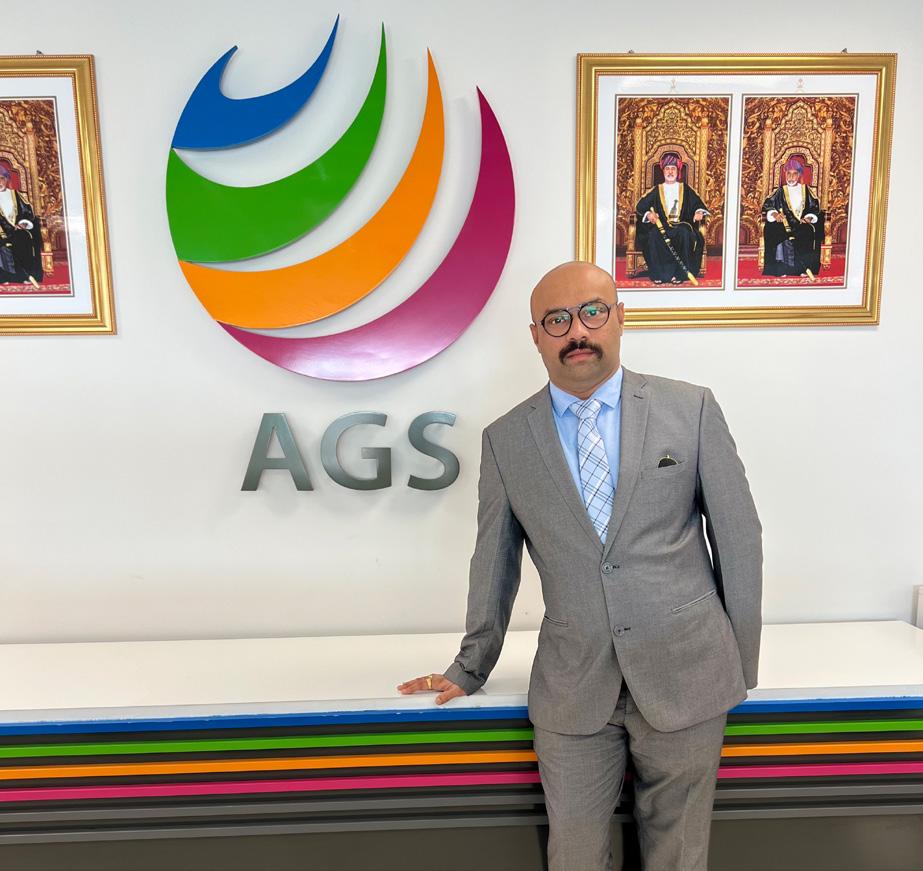
activity through shared assumptions and group norms.” Based on the same idea, any school can gain from more closely aligning its culture to better support teaching and learning, regardless of how well it is performing right now. The culture of the school should be a priority for school leaders from day one. Educational leaders should be aware that tackling culture head-on doesn’t exclude tackling other issues concurrently. In reality, you should be working on both constantly as a leader.
According to a Harvard Business School CPD, one should describe a school’s culture as “enabling” (for a quality that supports realizing the school’s vision) and “inhibiting” (for traits that are an impediment to reaching your goals), rather than “good” or “bad” or “positive” or “negative”. It is indeed difficult for a school leader to determine whether a certain trait is enabling or inhibiting, for example, do you think that teachers exchanging practices or ideas is an enabling or inhibiting trait? Running a successful school requires a supportive culture. It can be referred to as an enabling trait when teachers and students act in a way that is consistent with the primary mission of the school. When these attitudes and actions
conflict with the school’s mission, it can be termed an inhibiting trait.
As a school leader, you should make sure that your school’s vision is reflected in the culture of the school. Ideally, you should be able to create a concise version of the vision statement that is simple to explain and easy for everyone to remember, which is called an “elevator pitch”, which is a shorter version of the school’s vision statement that may be delivered in the course of one elevator trip. Elevator pitches should include no more than three to five key points and should clarify the “what” and “why” of your vision statement, repeat your vision so many times you can recite it in your sleep!
It goes without saying that leaders must be aware of how important the vision statement is in guiding their educational institution to success.
1. It will serve as both a compass to keep the school going in the direction of your vision and a yardstick to track progress over time for the work being done at your institution.
2. The institution’s vision should be apparent to every employee and should be used to inspire your community, convey your priorities, and encourage employees’ daily work.
Educational leaders should be aware that tackling culture head-on doesn’t exclude tackling other issues concurrently. In reality, you should be working on both constantly as a leader

